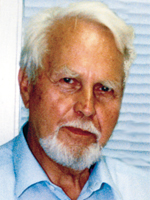
Prof. Périaux

Prof. Zienkiewicz
In 1989, UNESCO and UPC · BarcelonaTech reached an agreement to create the first UNESCO chair in the world: the UNESCO Chair of Numerical Methods in Engineering.
The main mission of the Chair is to promote the development, dissemination and application of numerical methods in engineering at an international level, through education, research and technology transfer, with the aim of contributing to the solution of complex problems in lower income countries.
Prof. O. C. Zienkiewicz held the UNESCO Chair since its creation in 1989 until his death on January 2nd, 2009. Since 2009, the Unesco Chair of Numerical Methods in Engineering is held by Dr. Jacques Périaux. He is a recognized expert in the field of numerical methods applied to aerospace engineering. Dr. Périaux contributions have resulted in a significant increase in the RTD activities of CIMNE in the aerospace sector, in particular with academic organizations and industry in China, the organization of numerous training courses, exchanges with leading scientists worldwide and several RTD projects at international level.
It is important to note that computational methods are especially useful in resource-limited countries because they enhance the ability of people to predict outcomes and optimize solutions before committing resources to specific investments.
An important UNESCO Chair activity over the years has been the creation of a series of “Aulas CIMNE” (CIMNE Classrooms), physical spaces of collaboration with other research groups in universities and research centers located mainly in Latin America and Europe. All nodes in the network connected to each other are using, transforming and broadcasting knowledge generated in CIMNE over the last thirty years.
Both the people and the knowledge generated by the network members easily circulate within the network. “Aulas CIMNE” is now a growing network of centers of excellence in research and training in the field of numerical methods.
A priority in the network is the promotion of joint projects in research and training using international competitive funds and existing programs that target specific local needs. Links with scientific groups and other organizations established locally are also actively encouraged. The network is the seed for creating other expected nodes in countries of Africa and Asia.

